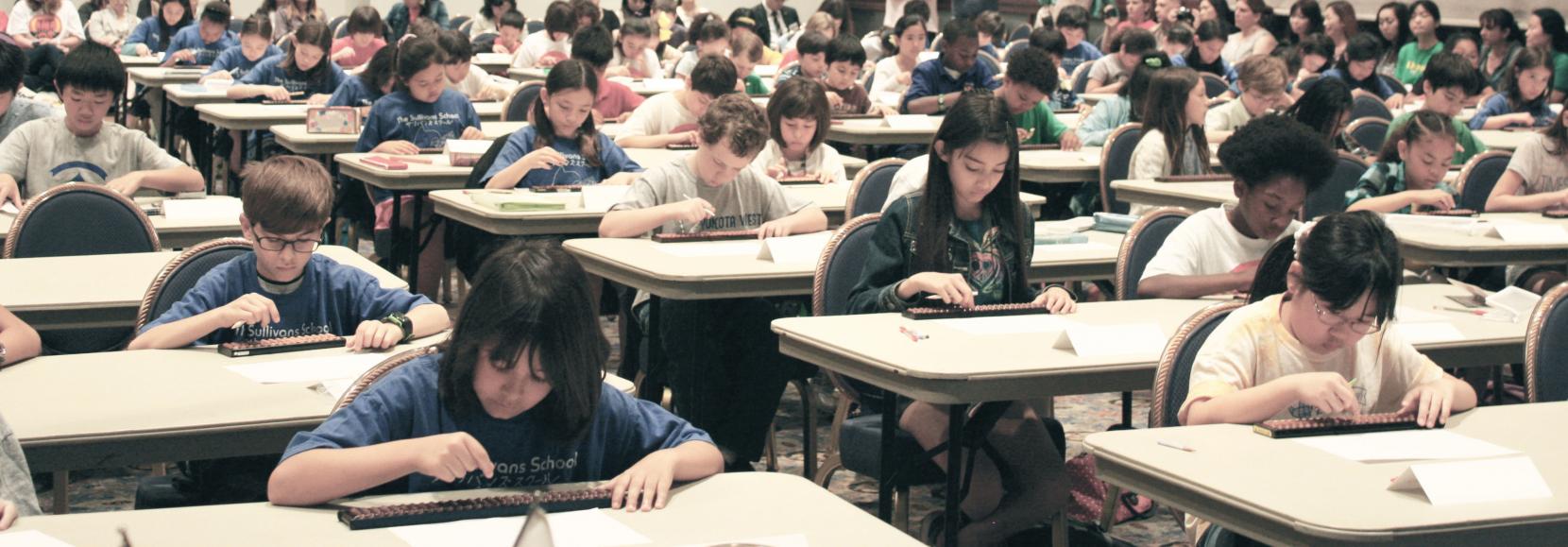The Charles A. Dana Center at The University of Texas at Austin has been awarded a $12.7 million contract by the U.S. Department of Defense Education Activity to advance math education for children on U.S. military bases.
The Dana Center will train teachers and administrators to deliver consistent, high-quality math instruction to thousands of students whose parents are in the military across the globe.

The project will support changes in math instruction provided to approximately 75,000 students, enrolled in grades pre-K through 12, at schools on military bases in 13 countries, including the United States and its territories. Because children in military families are highly mobile and many of them must cope with the added stress of having a parent deployed for duty, the Dana Center's approach blends strategies for curriculum implementation with guidance that will help teachers work with a population of students who sometimes encounter unique challenges along the trajectory from preschool to graduation.
"No matter where they live or what their lives look like outside the classroom, all students deserve opportunities to engage in rich and relevant learning experiences," said Uri Treisman, executive director of the Dana Center. "They need an environment that motivates and prepares them with a foundation for the lifelong success that research shows comes with understanding math. We are thrilled to work with the Department of Defense Education Activity to promote positive outcomes for every child who sets foot in their schools."
Children in military families move more than the general population. As their parents get stationed for duty, the average school-age child will change schools six times or more by the time he or she graduates. In part to reduce the challenges associated with frequent school changes, the Department of Defense Education Activity is phasing in a set of college and career-readiness standards across its campuses; the Dana Center aims to help teachers and administrators bring those standards to life for students.
The new standards create more consistency in what students learn by grade level, meaning expectations for second-grade students on a base in North Carolina would be the same for students on a base in Guam. Both classes would learn essentially the same content. Teachers and administrators across the entire system will work together to help students build a strong core of mathematical knowledge, problem-solving skills and learning strategies.
"Academic predictability mitigates some of the challenges military-connected children experience related to frequent school moves," said Mary Keller of the Military Child Education Coalition. "Their parents are reassured, too. We cannot be more pleased that the Charles A. Dana Center is offering its expertise and professional practice to support the needs of these students."
The Dana Center already provides research-based science and math support for teachers and schools across the country with a primary focus on underserved populations. The new initiative represents the center's first contract with the Department of Defense Education Activity, which has 178 schools worldwide. More than half of military-connected children in these schools come from communities of color, and the new project aims to ensure that Latino, African American and other underrepresented minority students all have effective educational experiences that will set them up for future success.
"This award represents an investment in STEM education for a diverse group of students across the country and the globe," said Linda Hicke, dean of the College of Natural Sciences where the Dana Center is based. "The Dana Center, based at The University of Texas at Austin for more than 20 years, is transforming educational experiences for students and their families in a way that embodies our campus motto of 'What starts here changes the world.' "

















Comments